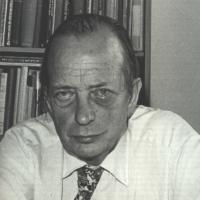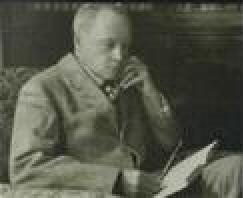Historians and Orientalists |
||||
Arthur Llewellyn Basham
Professor '''Arthur Llewellyn Basham''' (Born 24 May 1914- Died 27 January 1986) was a historian with the [[Australian National University]] in [[Canberra]]. He joined the ANU in 1965 as Professor of [[Oriental]] (later Asian) Civilizations and retired in 1979. After retiring from ANU, Basham accepted a series of one year visiting professorships with various universities. Basham was one of the first western historians to critically guage the impact of Swami Vivekananda from a global perspecive. His well-known comment about Vivekananda that "in centuries to come, he will be remembered as one of the main moulders of the modern world," is quoted frequently in appreciations and tributes of Vivekananda. Basham was appointed [[Swami Vivekananda]] Professor in Oriental Studies at the Asiatic Society Calcutta in September 1985. He died in [[Calcutta]] in [[India]] in 1986. An annual public lecture series is given at the ANU in his memory. Books: Possibly his most popular book is ''The Wonder That was India'' (Sidgwick & Jackson, London, 1954.) published seven years after the Independence of India. In 1963 a new and revised edition of the book came out. Then in 1967 a revised edition. Rupa & Co, New Delhi brought out a paperback edition in 1981. Macmillan Publishers Ltd., London, brought out a paperback edition in 1985. By 2001, the paperback version was in its 37th edition. Amazon.com staff review/book description reads "most widely used introduction to Indian civilazation. Although first pub. in 1954, has remained a classic interpretation." Basham also wrote "History and Doctrines of the Ajivikas", based on his PhD work done under L.D. Barnett. He also wrote "The Origins and Development of Classical Hinduism" jointly with Kenneth G. Zysk. A book about Basham, written by Sachindra Kumar Maity (published 1997, Abhinav Publications, ISBN 8170173264) is entitled Professor A.L. Basham, My Guruji and Problems and Perspectives of Ancient Indian History and Culture. the book includes 80 of Basham's letters addressed to the author. Thomas R. Trautmann a professor for history and anthropology of the Michigan University, dedicated his book "Aryans and British India" (1997, University of California Press) 'In memory of A. L. Basham, British Sanskritist historian of India, guru, friend'
R. C. Majumdar
Vivekananda championed the cause of Hinduism in the Parliament of Religions held at Chicago in 1893. There, in the presence of the representatives of all the religions from almost all the countries in the world, the young monk from India expounded the principles of Vedanta and the greatness of Hinduism with such persuasive eloquence that from the very first he captivated the hearts of the vast audience. It would be hardly an exaggeration to say that Swami Vivekananda made a place for Hinduism in the cultural map of the modern world. The civilized nations of the West had hitherto looked down upon Hinduism as a bundle of superstitions. Now, for the first time, they not only greeted with hearty approval the lofty principles of Hinduism as expounded by Vivekananda, but accorded it a very high place in the cultures and civilizations of the world.
K M Pannikar
“This new Shankaracharya may well be claimed to be a unifier of Hindu ideology.” - Kovalam Madhava Pannikar (1895 - Dec 11, 1963). Pannikar was a scholar, journalist, historian, administrator and diplomat.
Sir John Woodroffe
The qualities I most admire in Vivekananda are his activity, manliness and courage. . . . He spoke up and acted. For this, all must honor him, who, whatever be their own religious beliefs, value, sincerity, truth and courage, which are the badges of every noble character.
|
- www.vivekananda.net edited by Frank Parlato Jr.

